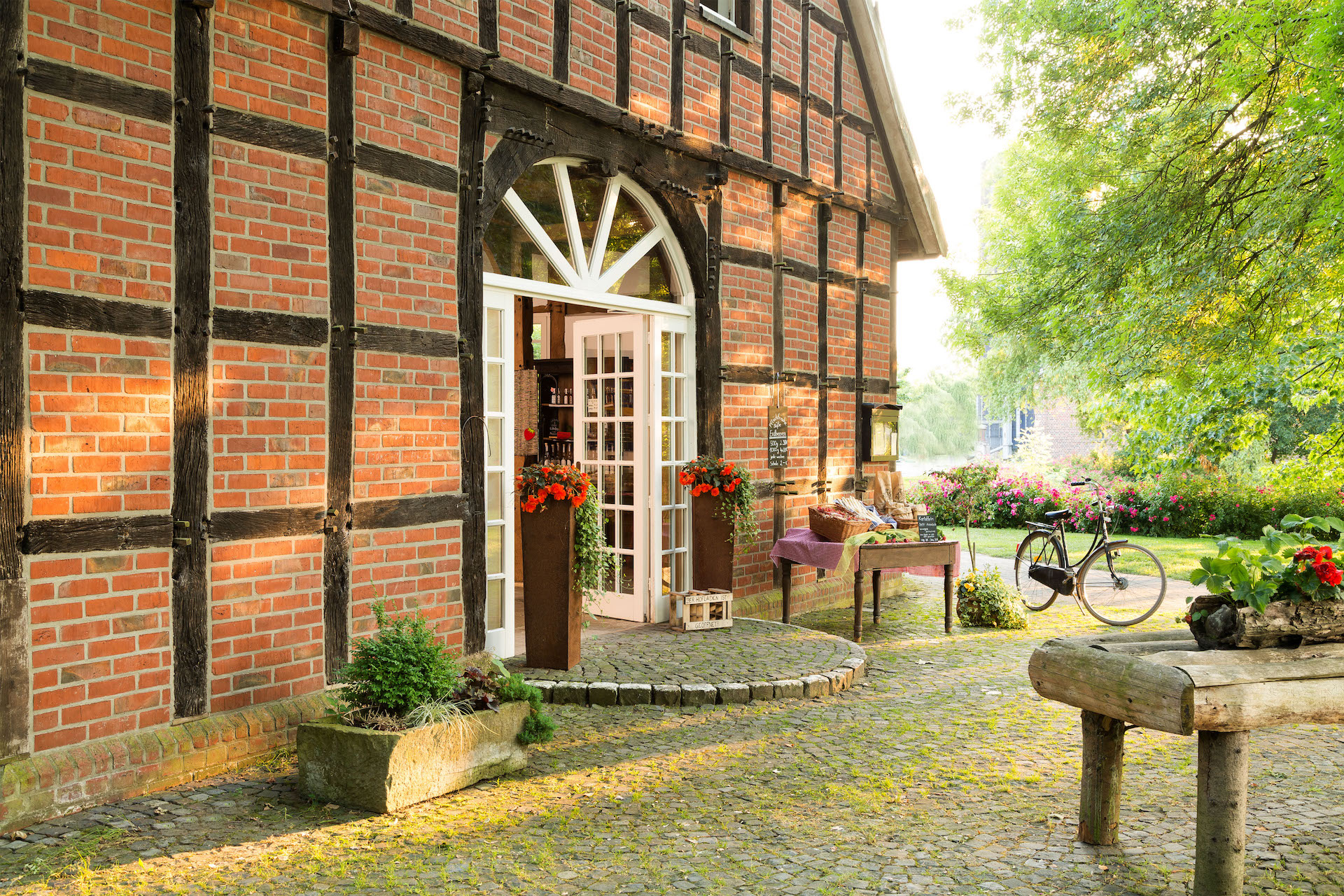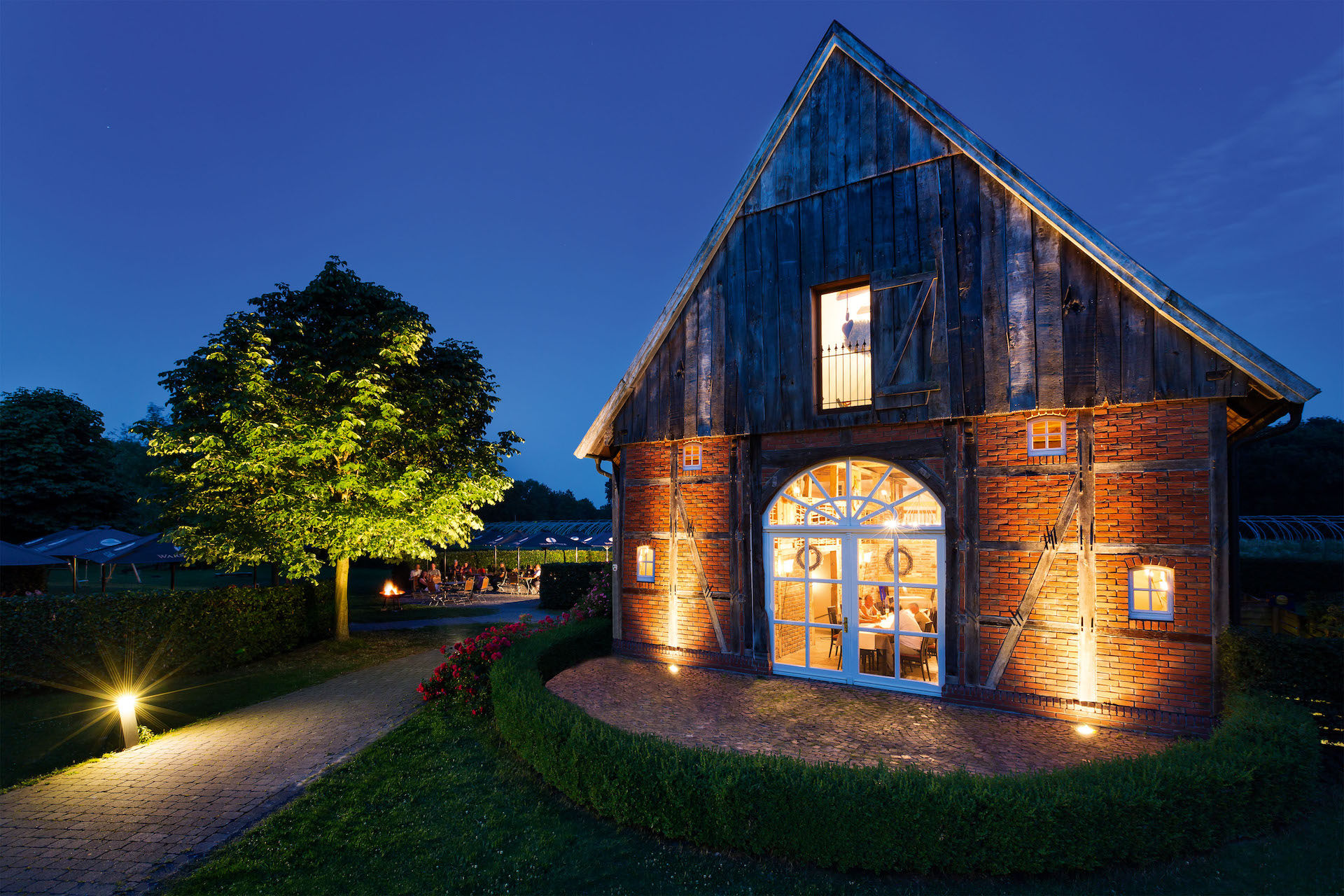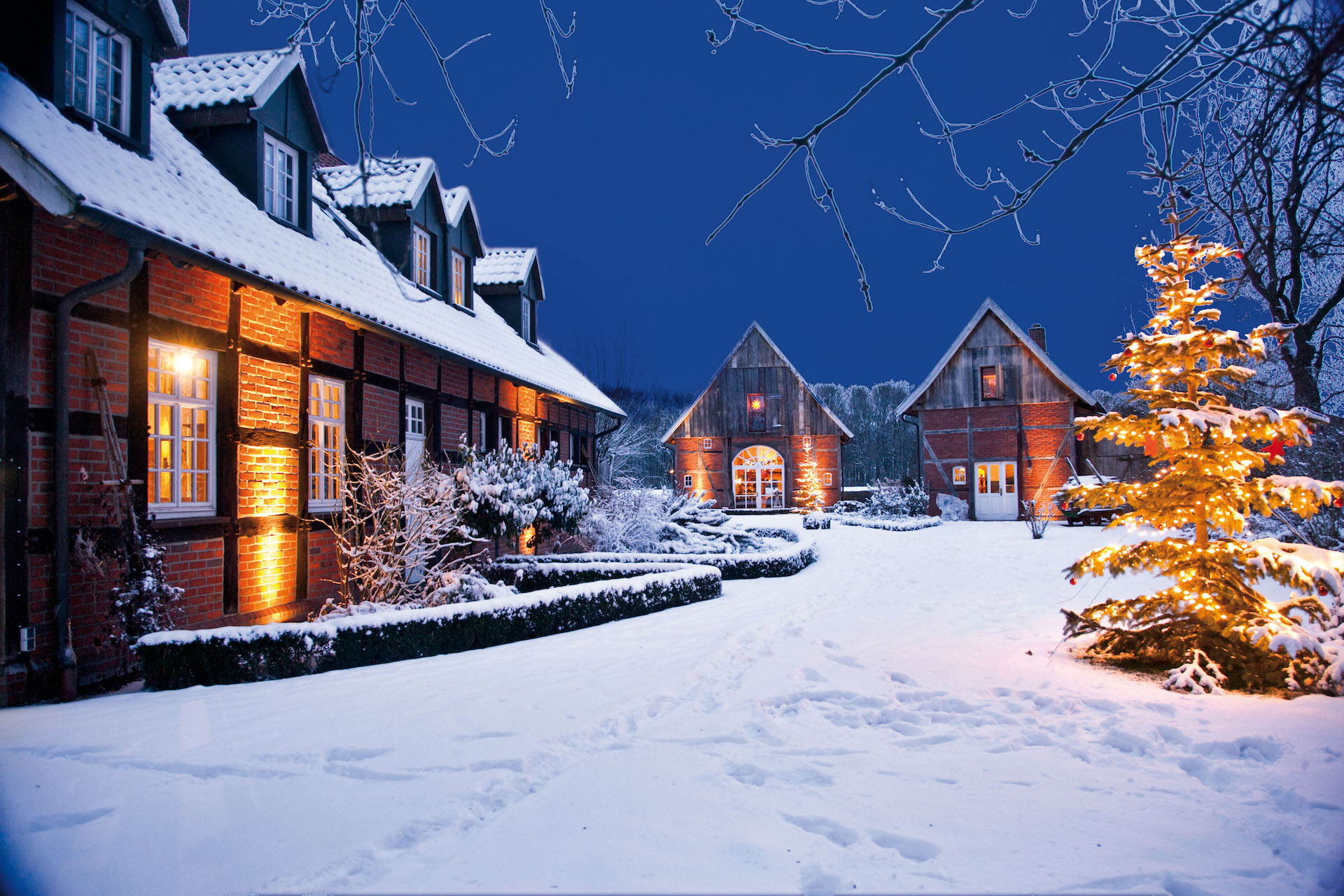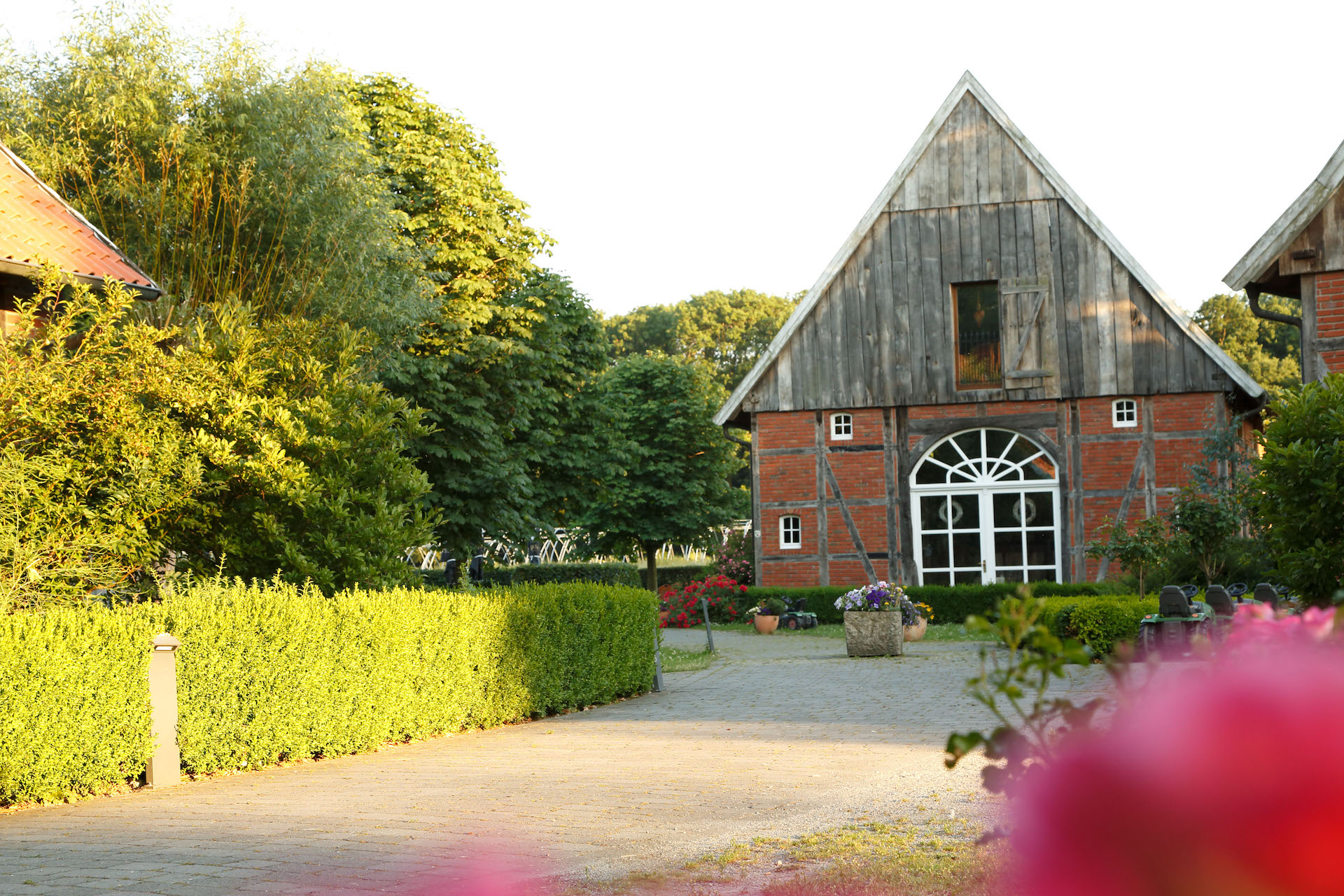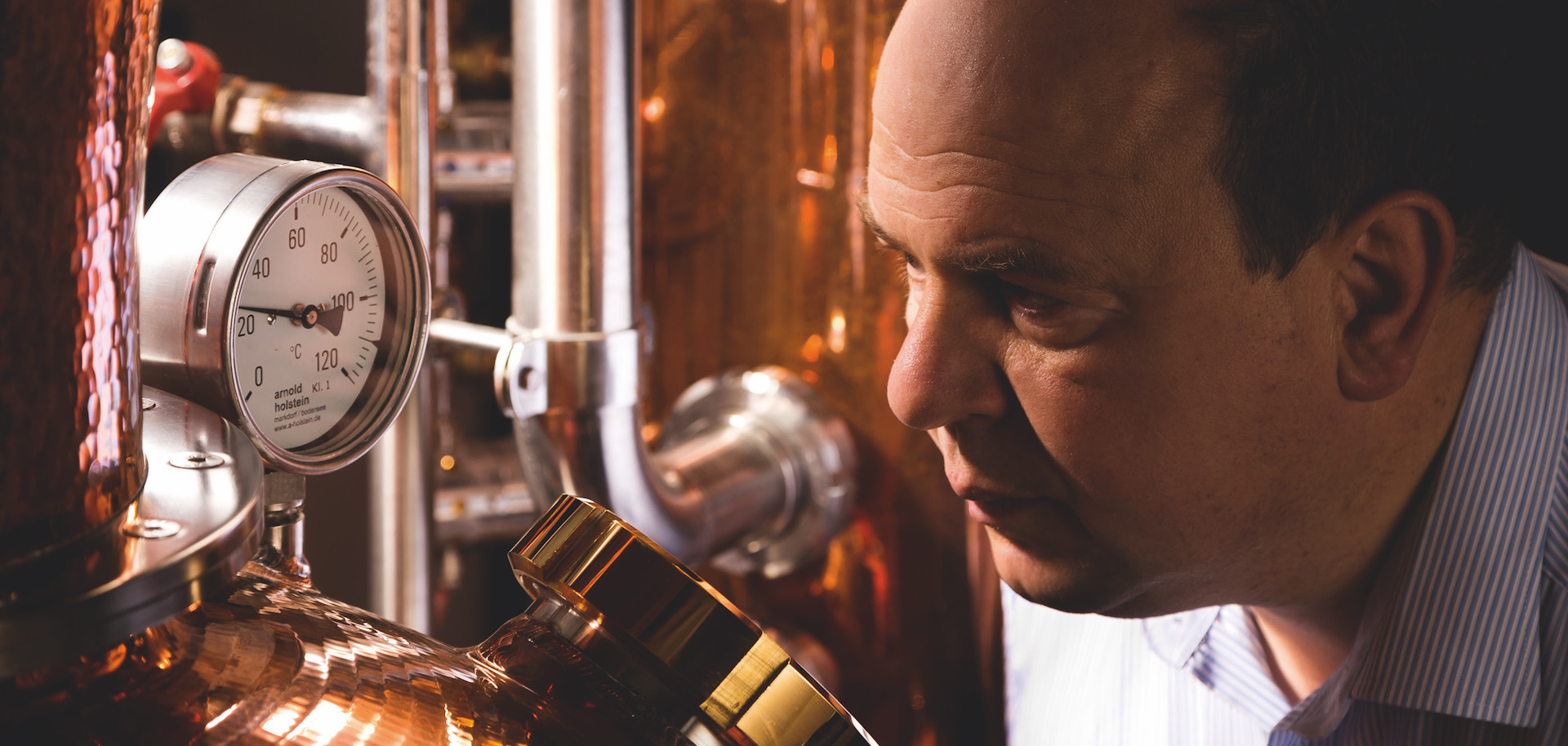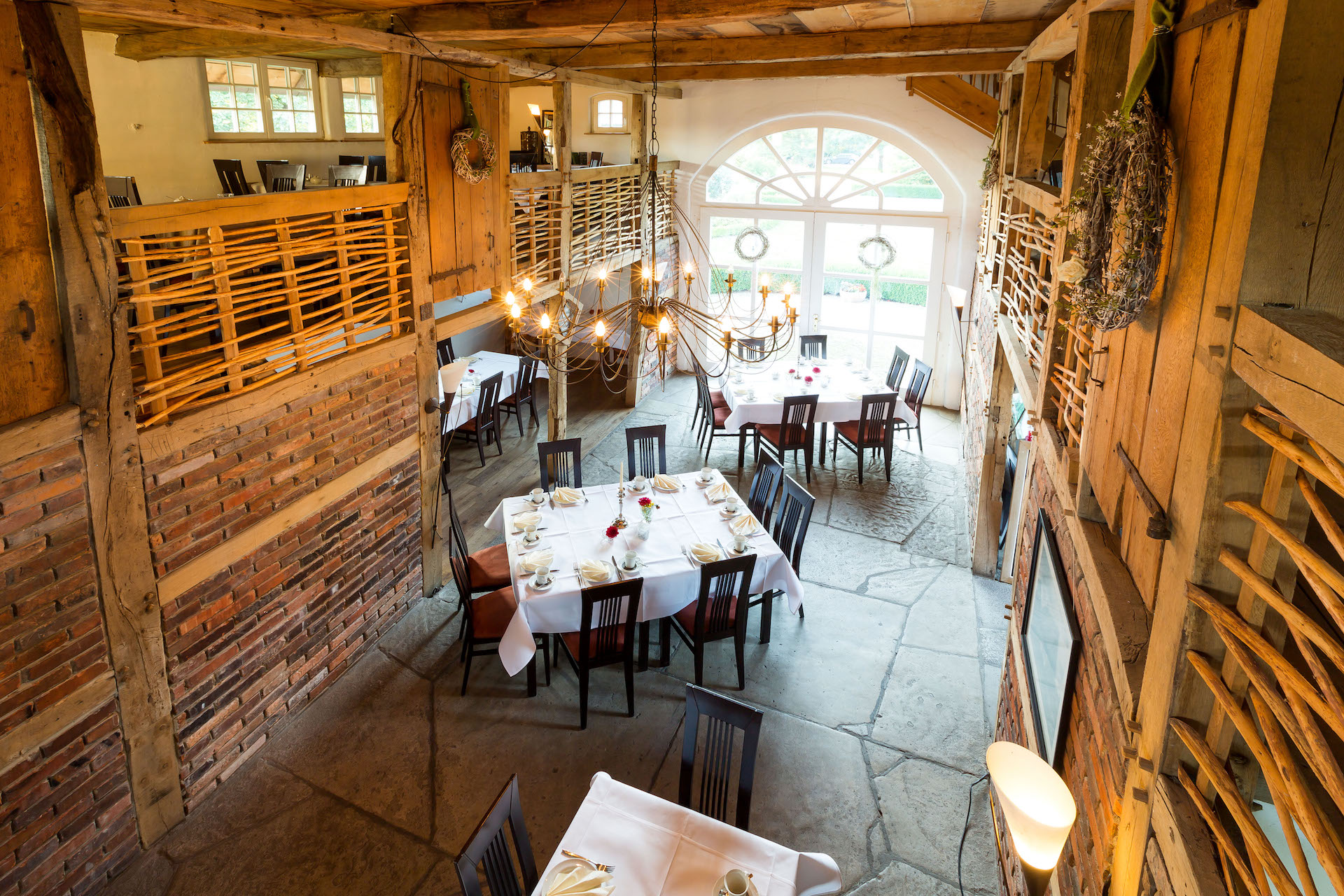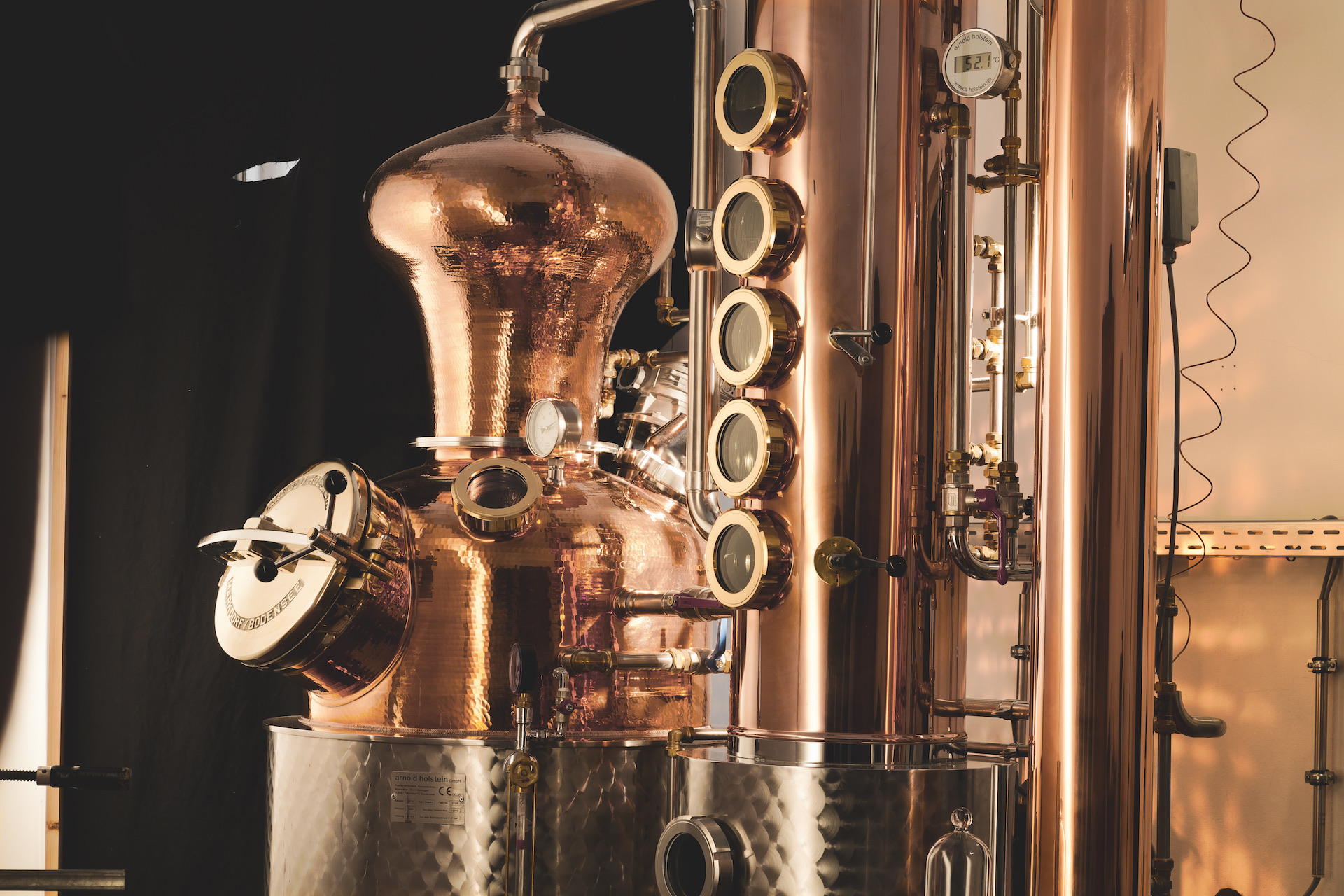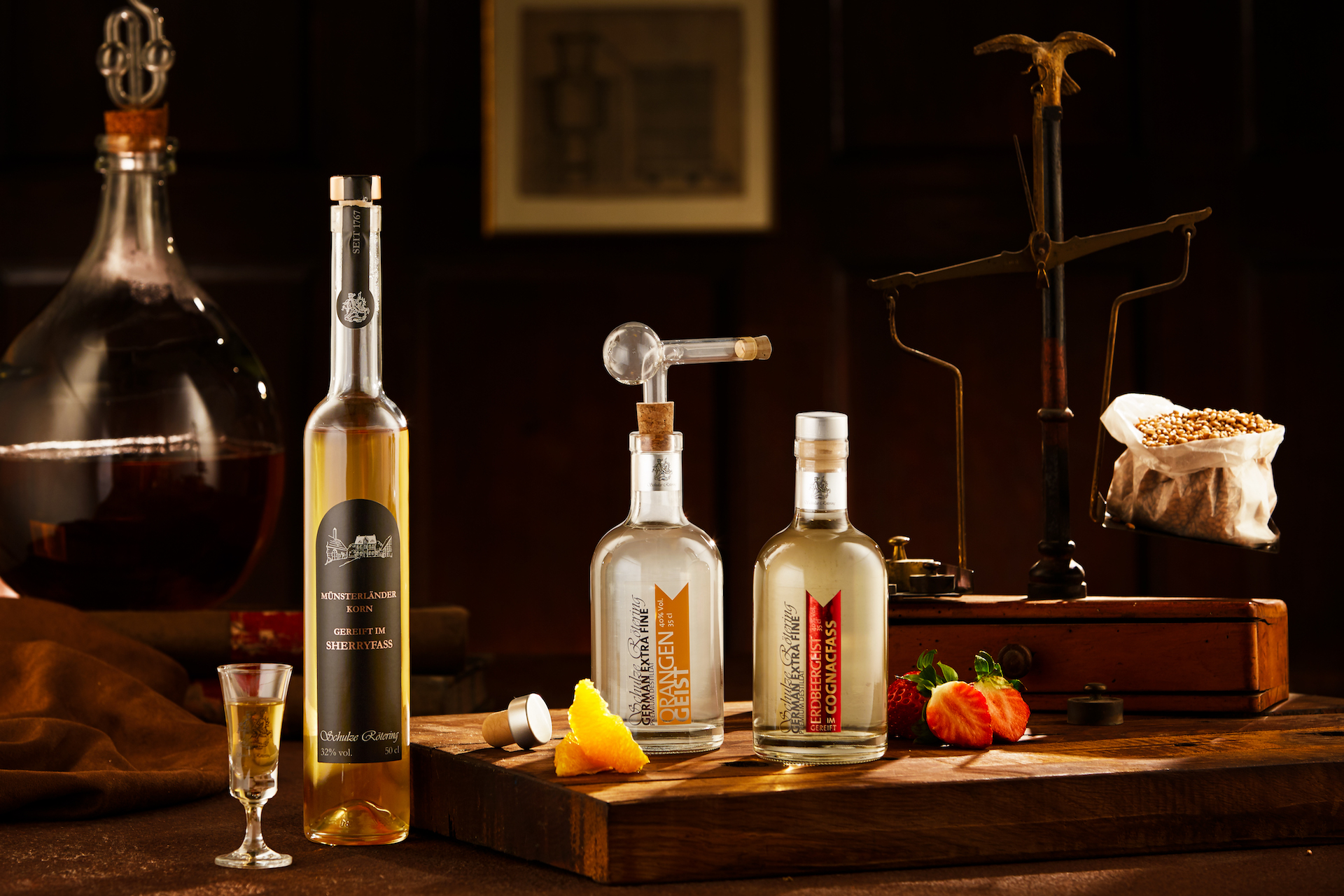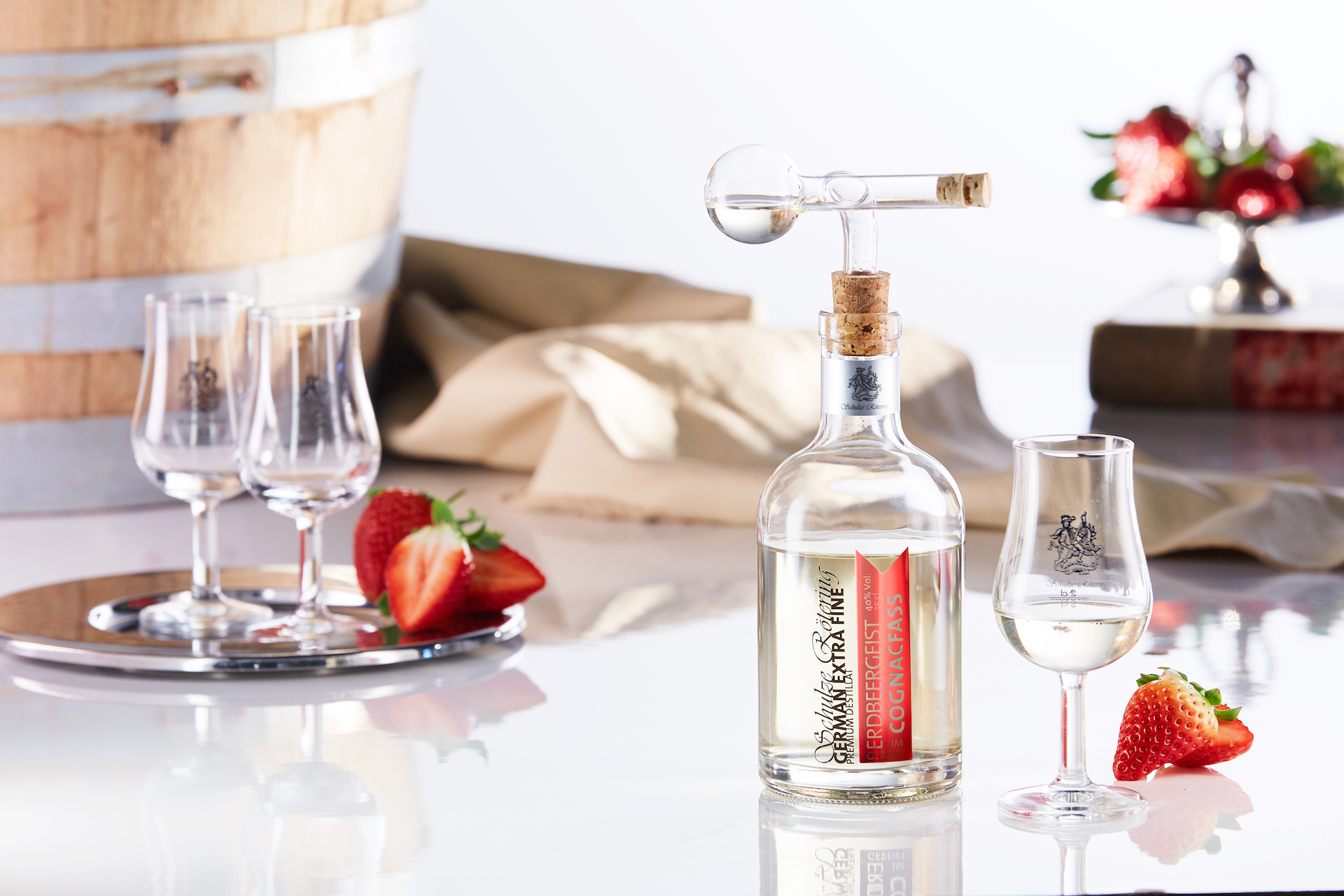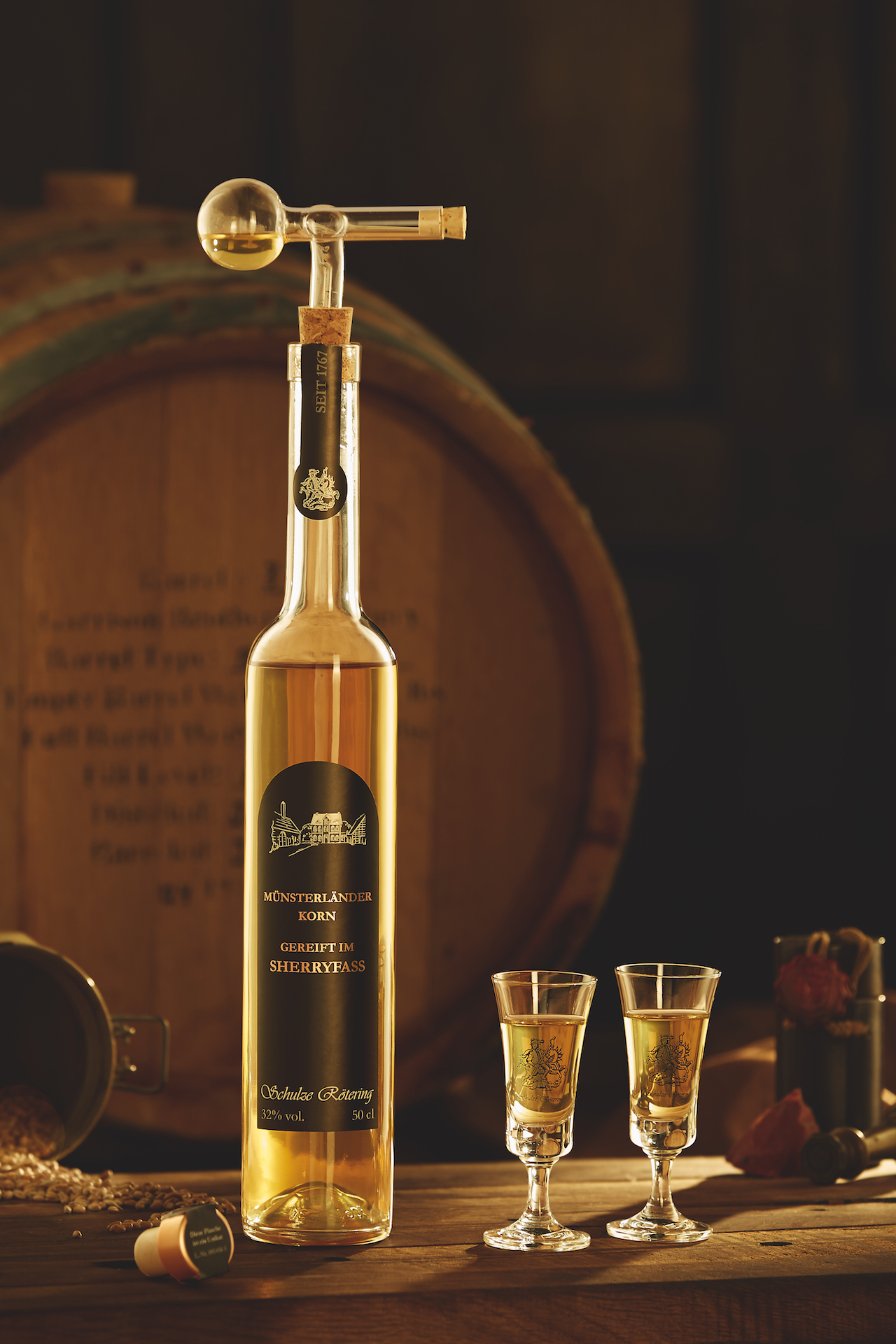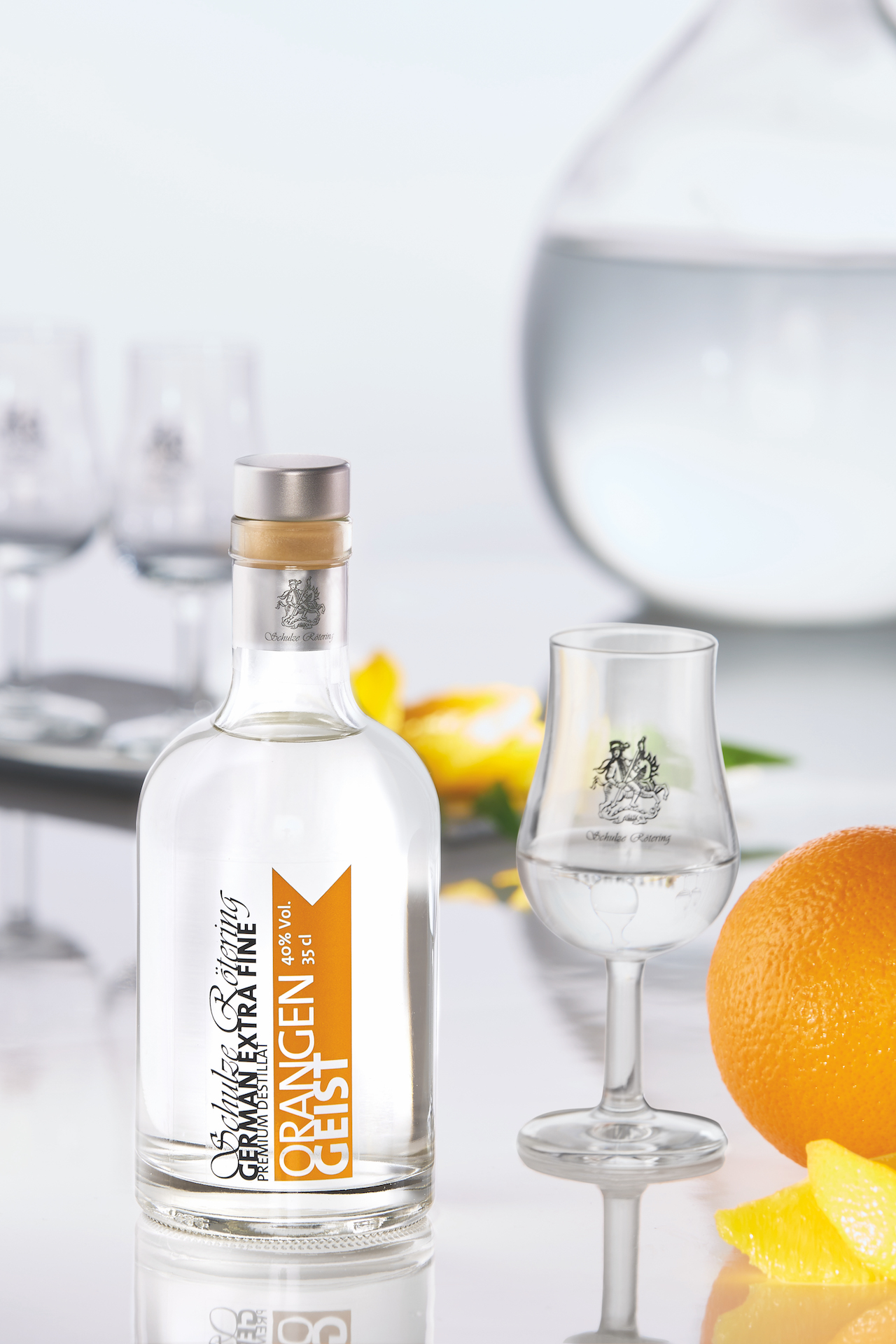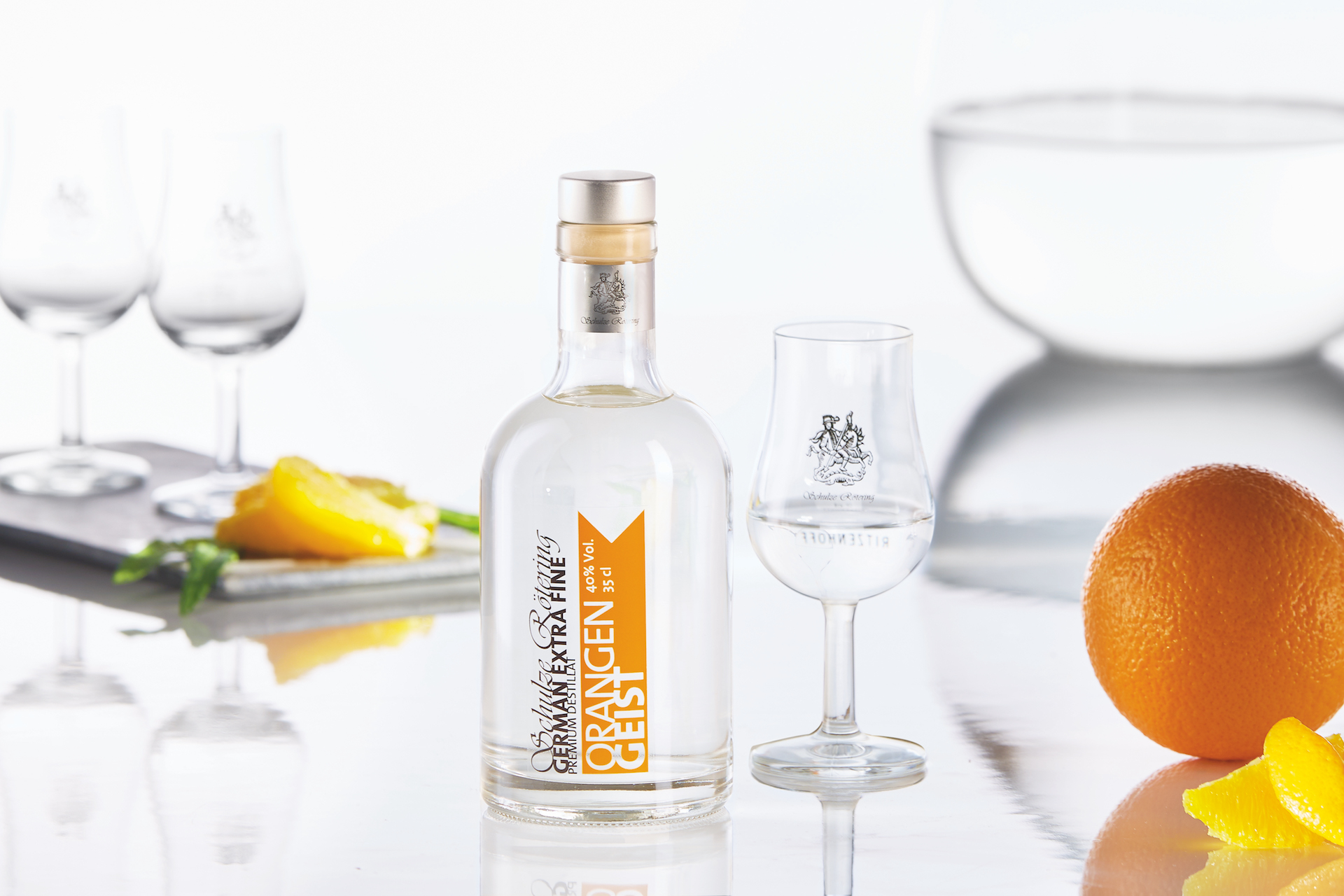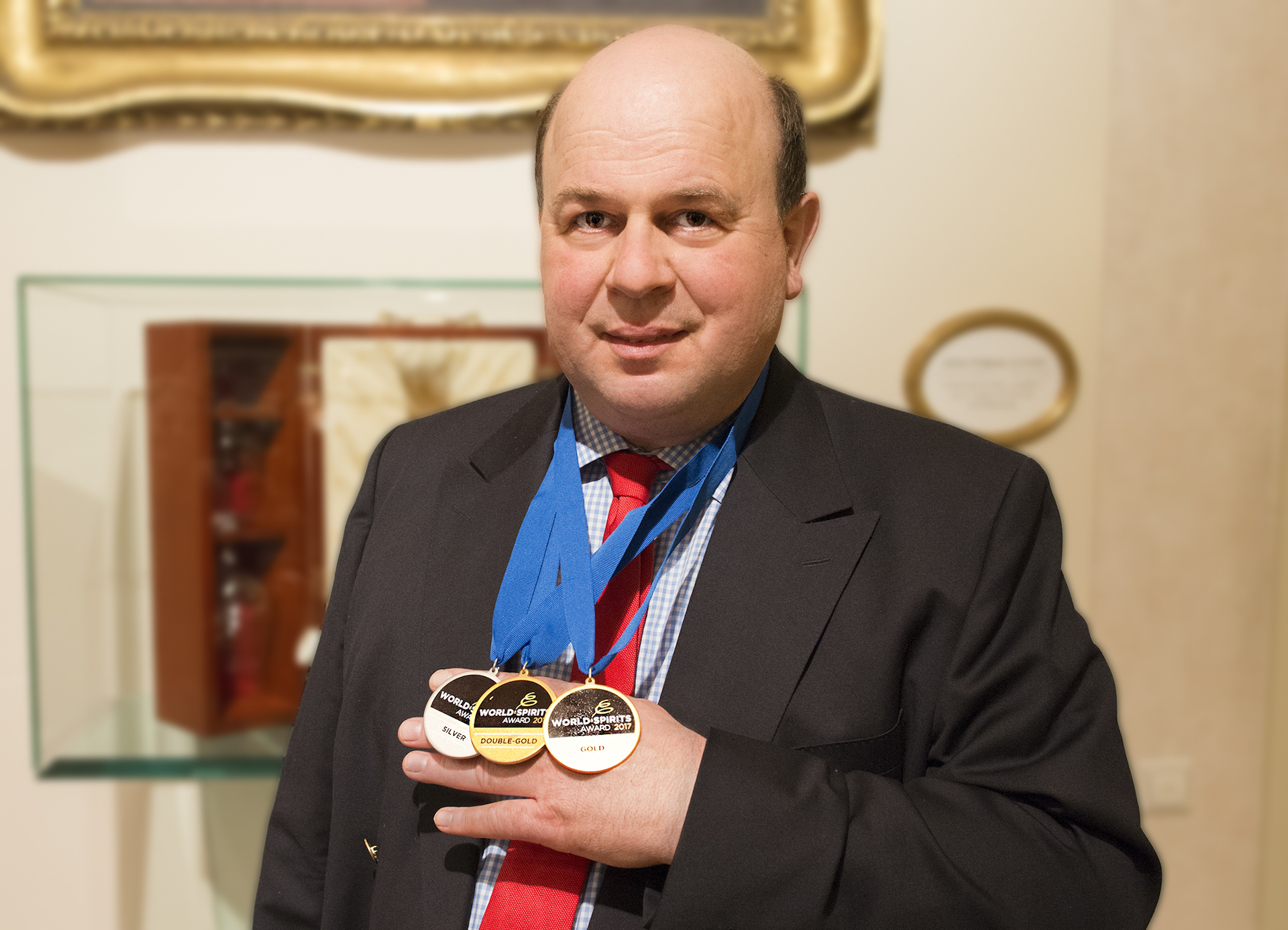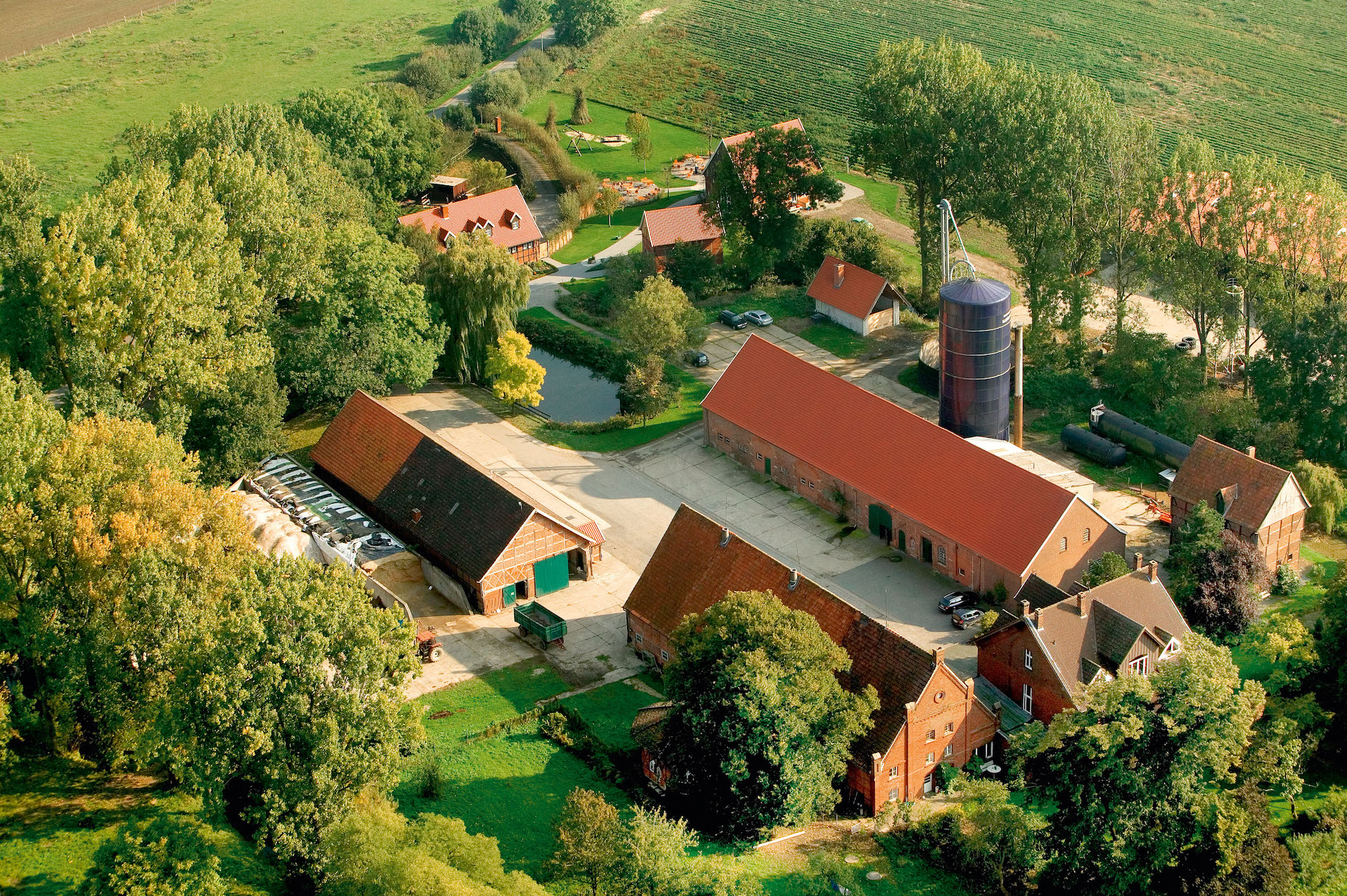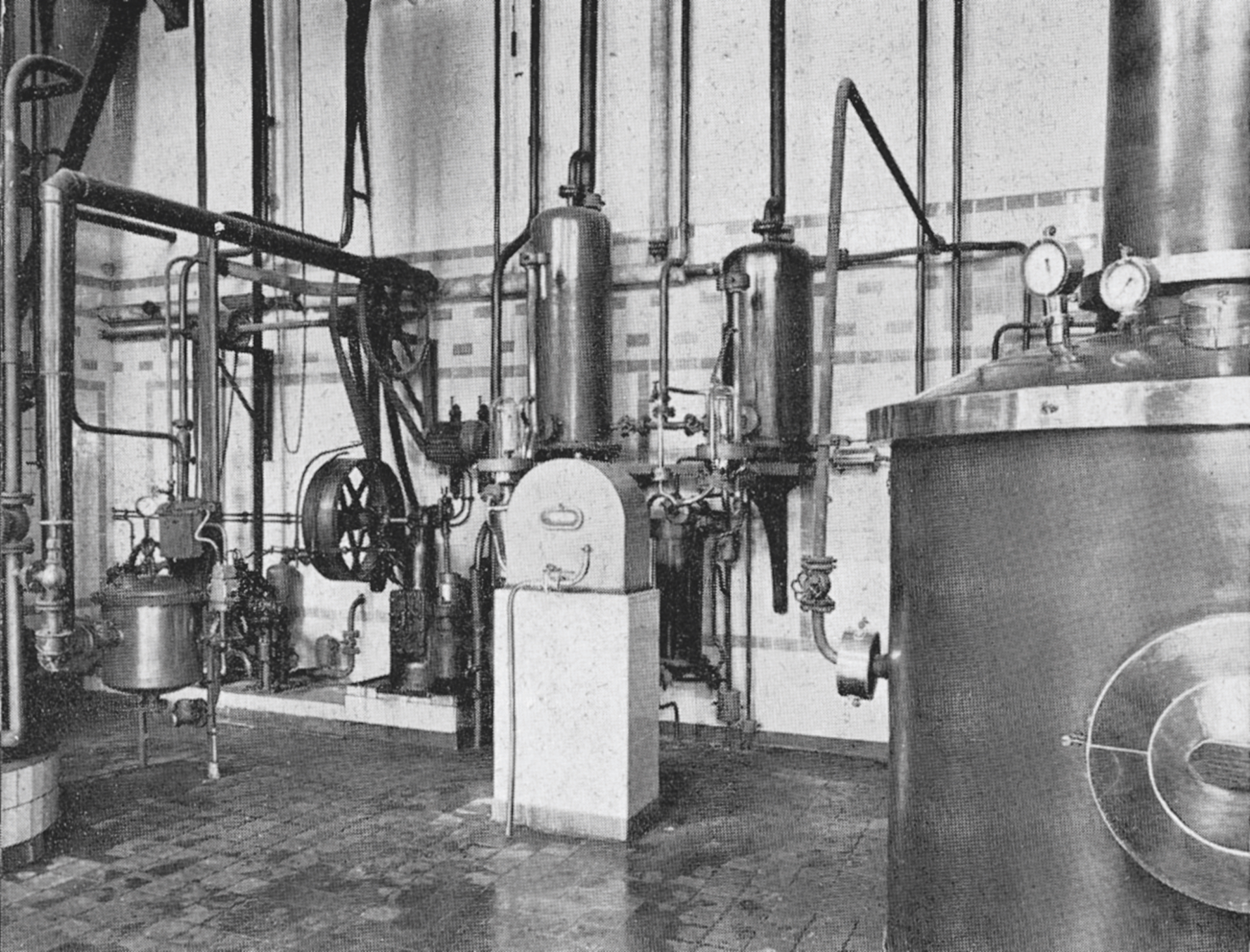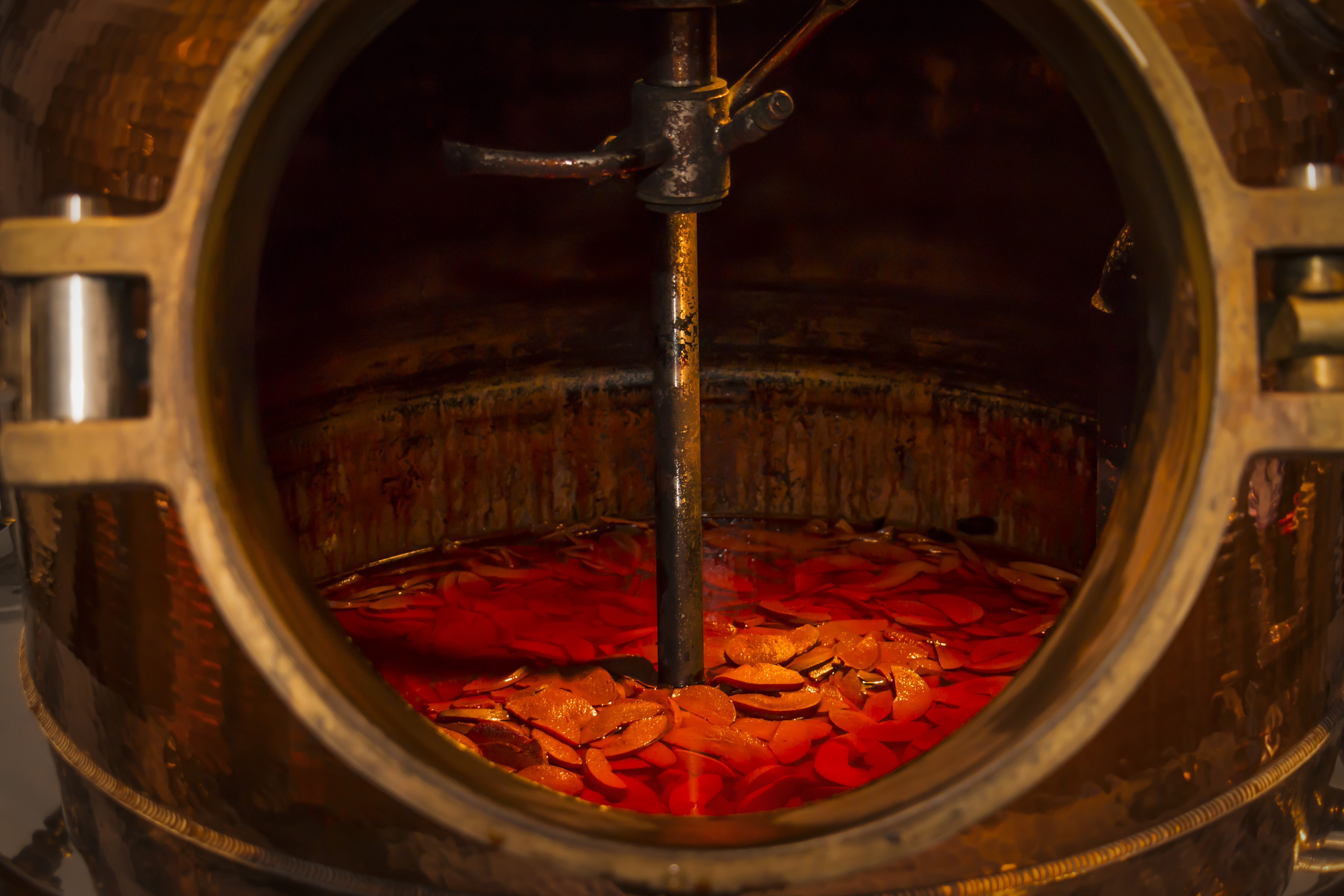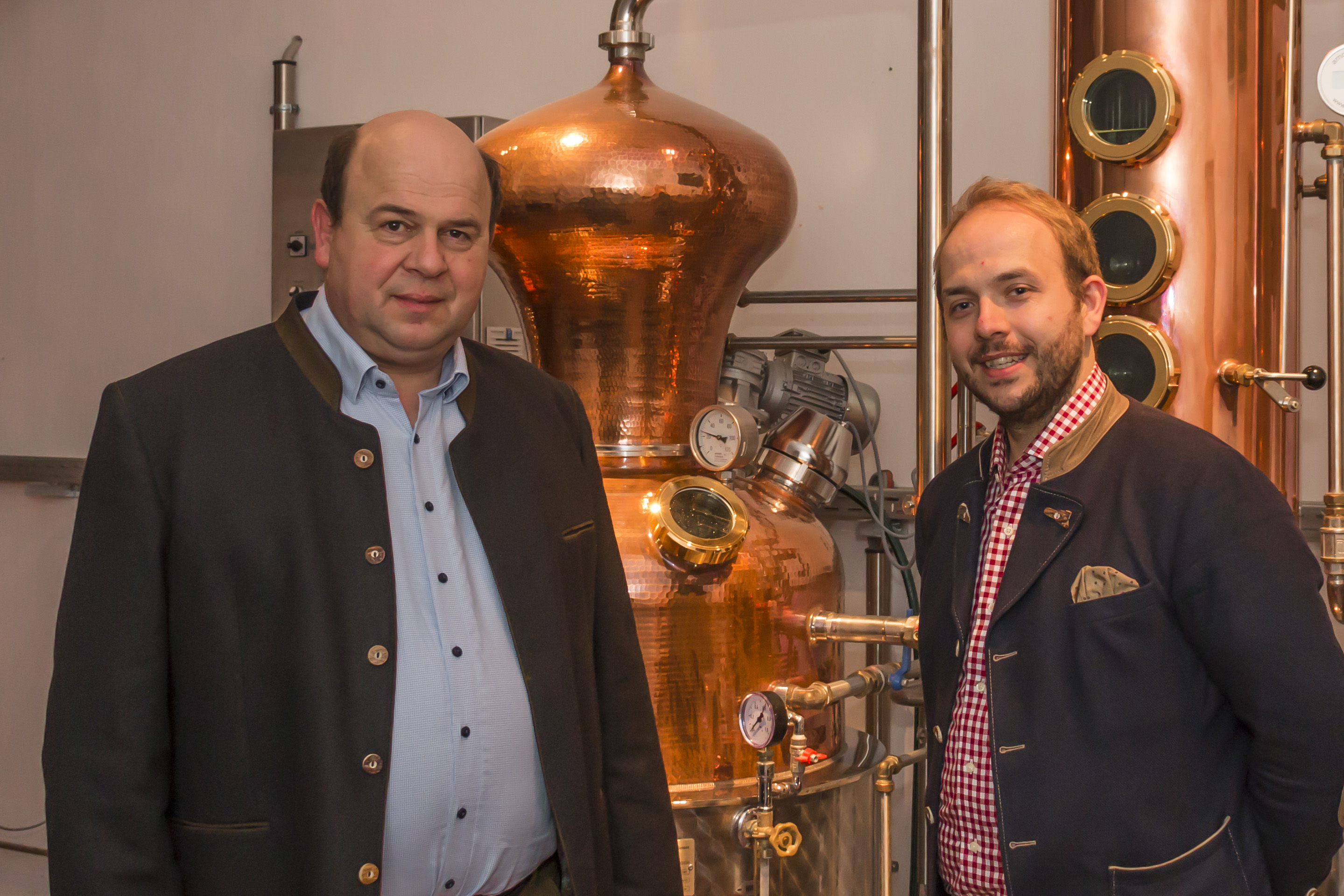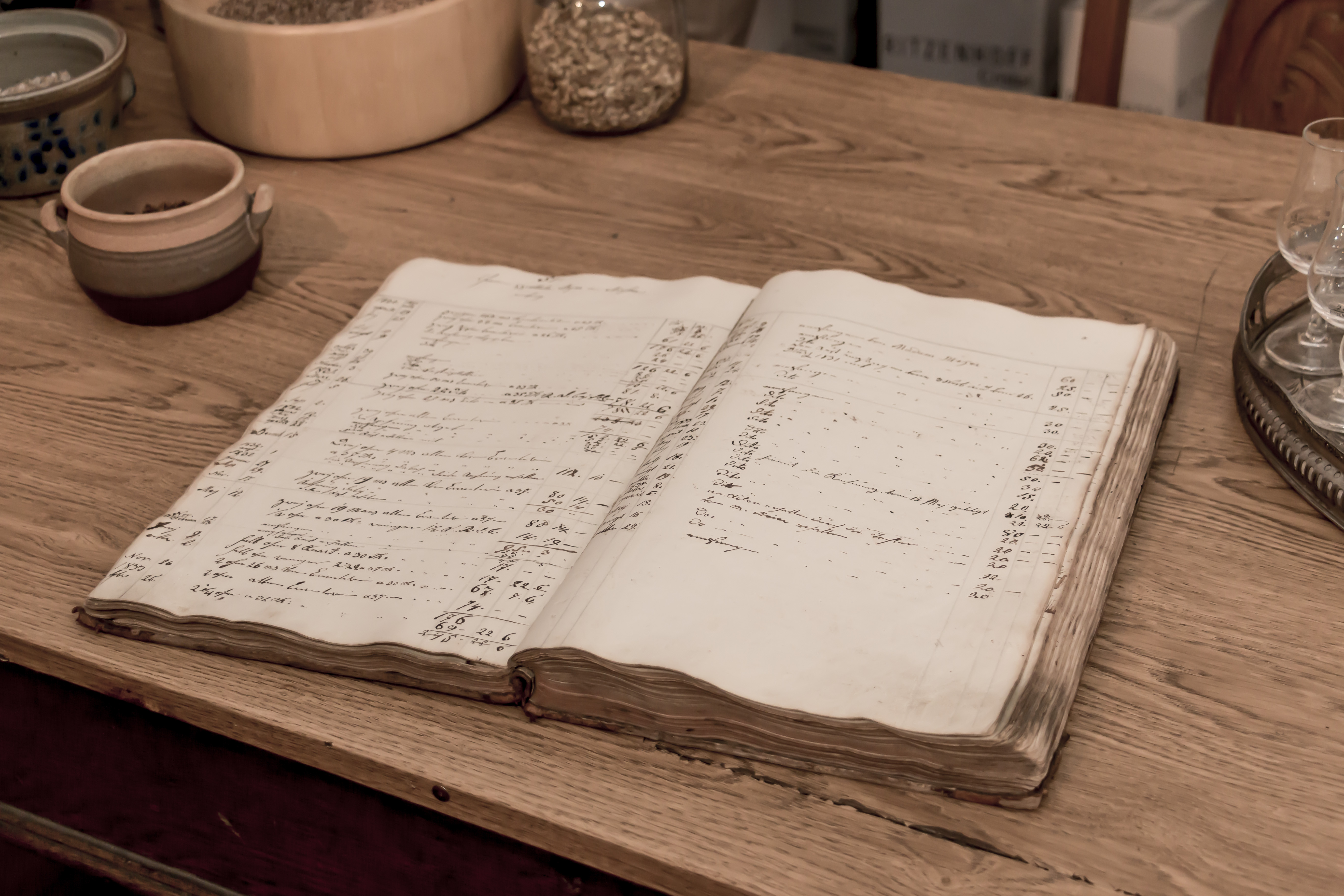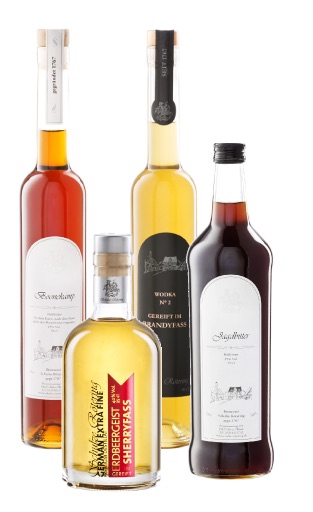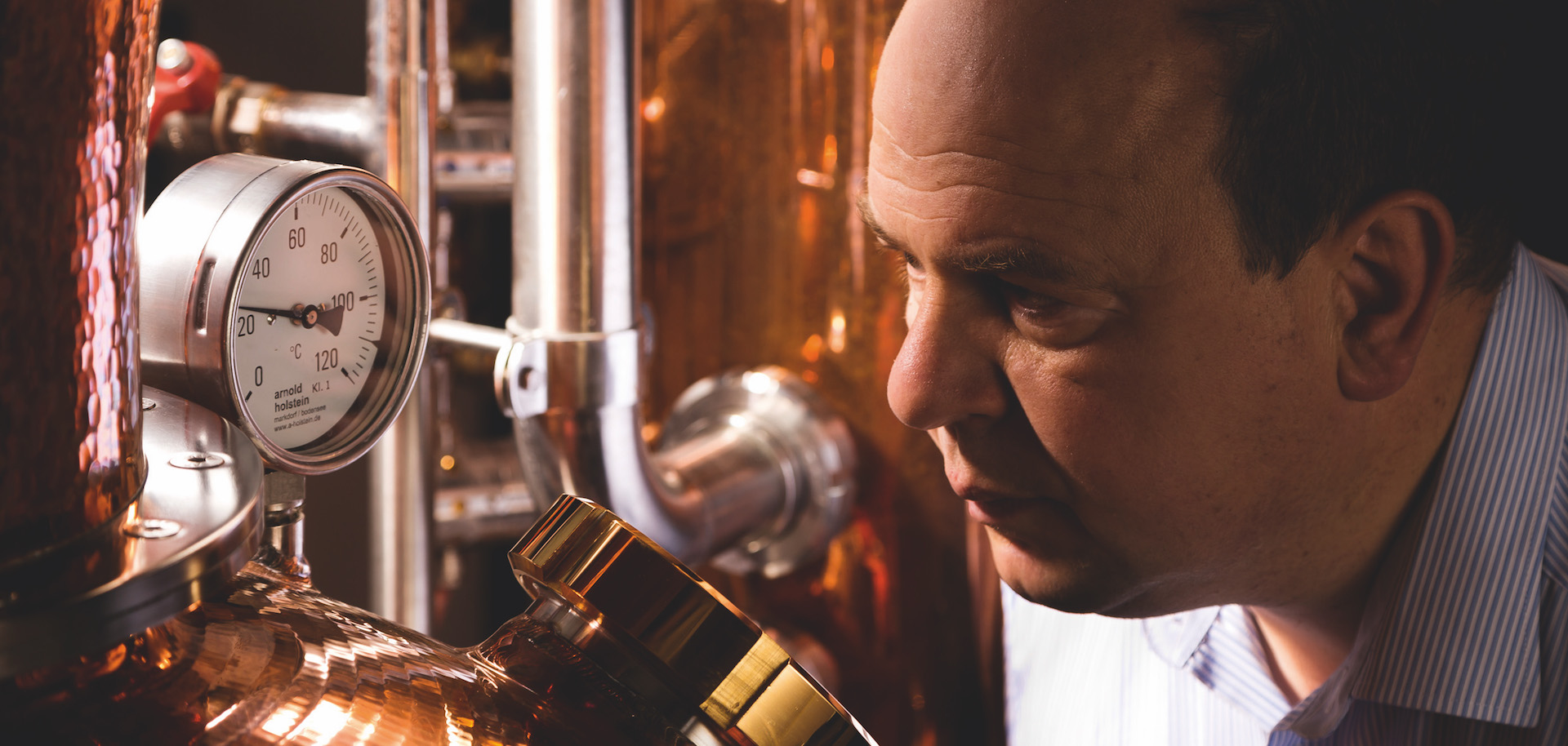

Text: Olaf Adam; Photos: Bernd C. Gassner, Olaf Adam
This article originally appeared in 0dB - The Magazine of Passion N ° 2
“You just cling to your clod.” Some people may say such a sentence lightly, but only a few should have such good reasons as Martin Schulze Rötering. Because the "Scholle" he speaks of is the Schulze Rötering farm near Ahlen and has been farmed by his family for at least 500 years, and it's probably been almost 800 years. Initially, the Schulze Röterings worked here as serfs of the responsible bishop, they have owned the farm since the early 19th century.
Even when Schulze Rötering speaks of his "family business", he thinks in terms of quite different standards than most people. For example, he has just reforested several hectares of commercial forest with oaks for a few tens of thousands of euros. “If things go well, we can start using this new forest economically in around 150 years. But it can also take 200 years, we don't know exactly yet. ”So his great-great-grandchildren will be able to reap the fruits of this investment at the earliest - in times when most managers only think until the next quarterly close, an almost unbelievably long planning period .
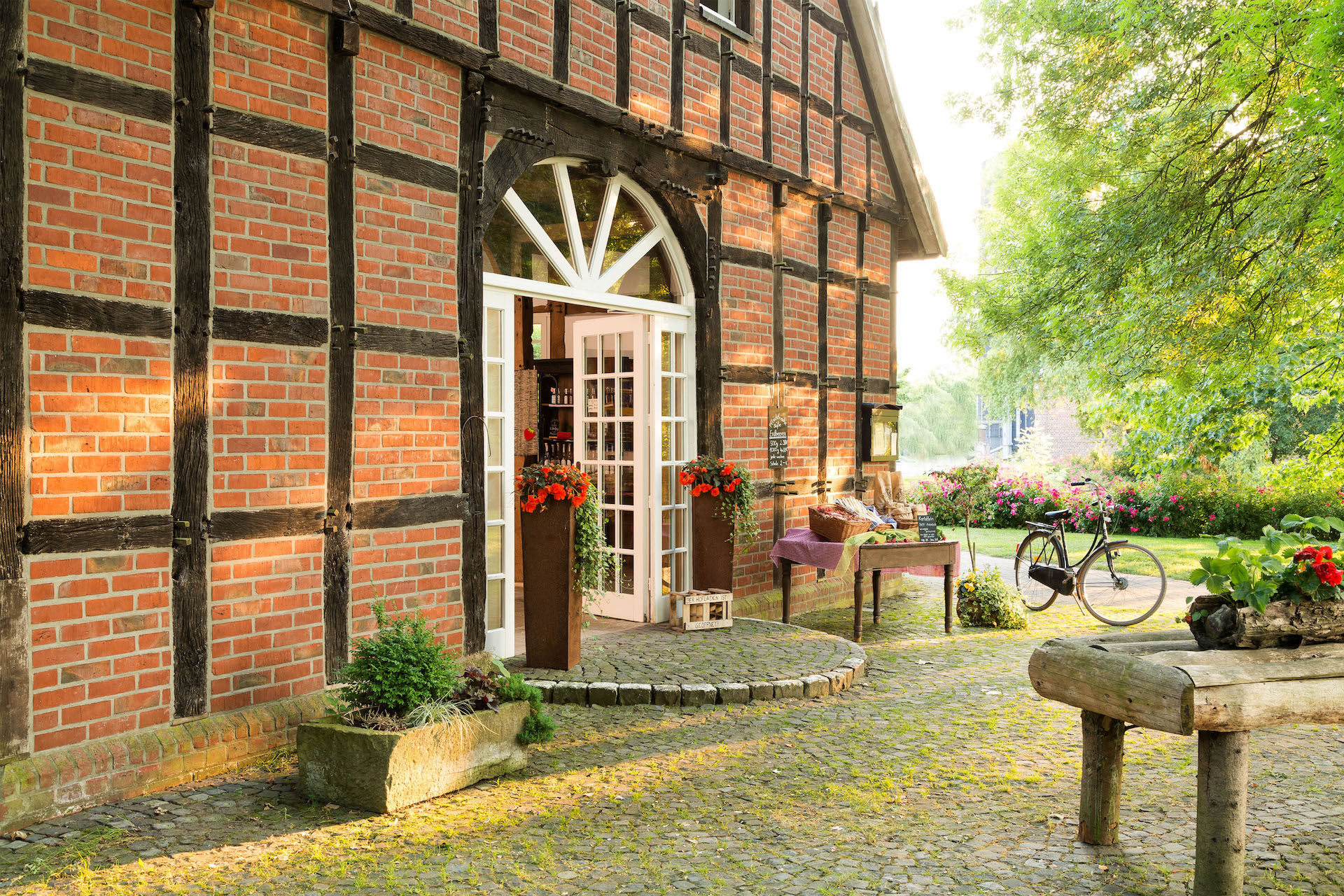
If you talk to Martin Schulze Rötering, you often get the feeling that the meaning of much-used words is being shed in a new light. “Tradition”, “sustainability”, “consistency” - when he says something like that, it simply carries more weight than when it appears in the marketing speech of a company that has passed through the hands of half a dozen investors in the past few decades. For the farmer from Ahlen, tradition is much more than just an empty phrase. He understands tradition not only in terms of what once was, but above all in terms of what will one day be. Because careful change is a prerequisite for long-term stability.
Hof Schulze Rötering is currently growing asparagus, strawberries and cereals, especially wheat. Most of this wheat is distilled into spirits on the farm, which has been an almost uninterrupted family tradition for 250 years.
Martin Schulze Rötering learned distilling from the ground up, first from grandfather and father on the farm, then as part of a proper training as a distiller. At that time the farm only produced raw alcohol, a cheap basic product that was sold on. But Schulze Rötering was not enough in the long run. “Even as a child I heard stories about my grandfather distilling the best and mildest grain far and wide. Back then there were no supermarkets, no advertising, no marketing. You had to convince your customers with the quality of the product, only then did word get around and people would come back. "
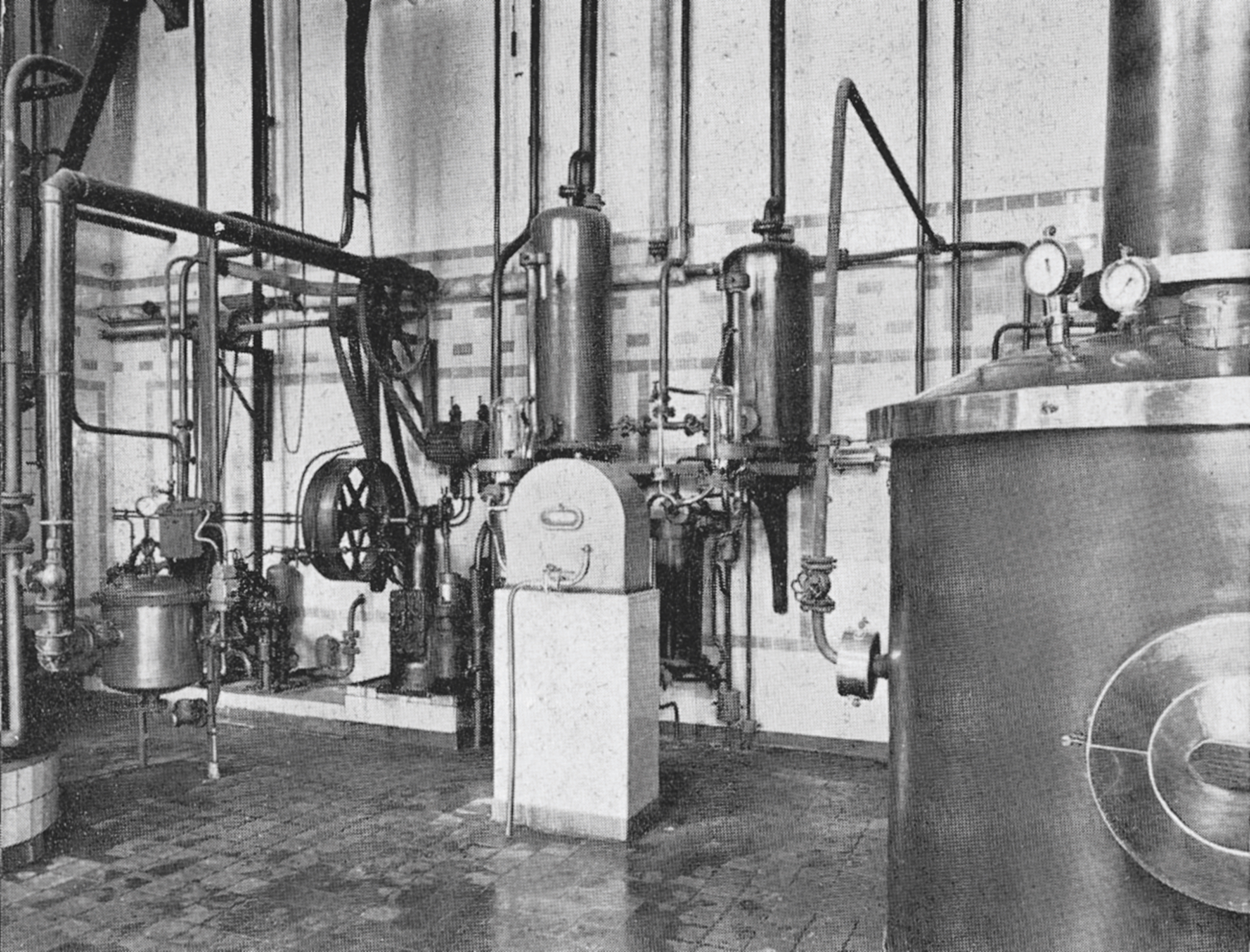
The budding master distiller even found old samples from his grandfather's work, bottled in 1917 and 1927. For his masterpiece, he examined these old distillates and found that they had a methanol content of only 16 mg / l - today this value is closer to 30 mg / l or more. Methanol is a so-called accompanying alcohol that is produced when burning and is poisonous in large quantities. It gives the schnapps its sharpness - the higher the methanol content, the more the distillate tastes like throat cleaner. The lower the proportion, the milder the product. So grandfather's old distillates went down your throat much more pleasantly than today's products.
The reason for this was the elaborate fine distillation system that Schulze Rötering sen. commissioned in 1908. This system no longer existed, but Martin Schulze Rötering found the original plans in the extensive family archive. It was originally planned with 46 cleaning floors in order to enable the lowest possible methanol content. Another five floors were added later, the samples mentioned come from this period. In a diary entry, however, the experienced master distiller revealed that he would actually have preferred a system with 55 floors.
Martin Schulze Rötering took on the old plans, updated them technically - and planned 60 cleaning floors right away, better safe than sorry. But with the few manufacturers who can still build such distillers today, he encountered incomprehension with his ambitious plans. Impossible, useless, we won't do it, were the assessments of the experts. But Schulze Rötering did not let himself be put off, continued his research, talked to old master distillers who encouraged him in his plan, and finally found a company that agreed to put the planned system on his farm. Against 100% prepayment and expressly without any functional guarantee.
So the whole thing was a daring undertaking and anything but cheap. But Schulze Rötering decided to take the step, so that since 2015 the tower of a fine distillation system has again protruded from the old distillery, almost 20 meters high. And despite all prophecies of doom, the new system worked just as intended. After the first successful distillation attempts and a little fine-tuning, Schulze Rötering can now produce a wheat brandy with less than 5 mg methanol per liter - a distillate that is unlikely to be found anywhere else in the world in this purity.
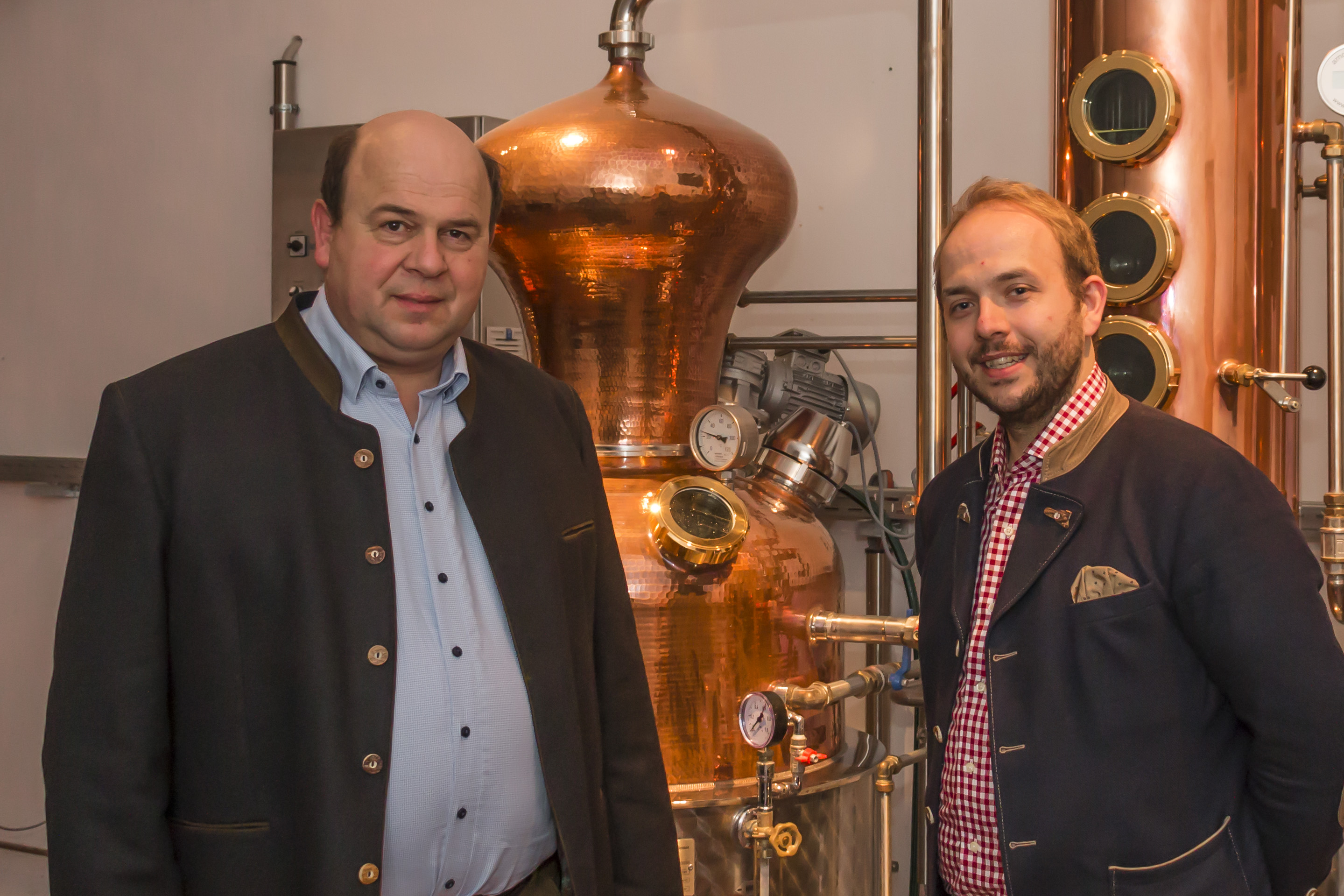
So the tenacity of the Westphalian has paid off and fine wines are distilled again at the Schulze Rötering farm. This also includes a juniper and a boonekamp, which are made according to 250-year-old family recipes. But the master distiller is particularly proud of his grain made from wheat grown on his own farm. From the field to the glass, Schulze Rötering has everything under control when it comes to the quality of the end product. And that's how he likes it best.
It is undisputed among experts that the noblest and finest alcohol can be distilled from wheat. But most customers only know grain as a cheap, mass-produced product. Only slowly does the perception of this traditional distillate change again, and Schulze Rötering makes a decisive contribution to this with its own fine brandies. Among other things, with variants matured in red wine, sherry or Grand Manner barrels, which impressively show the quality that can be found in the misunderstood grain. Here Schulze Rötering and his “pleasure ambassador” Boris Burat often have to do real persuasive work at distillery tours and tastings. “Many visitors flatly reject Korn. But once the skeptics have been persuaded to try their first sip, they will then see Korn with different eyes. "
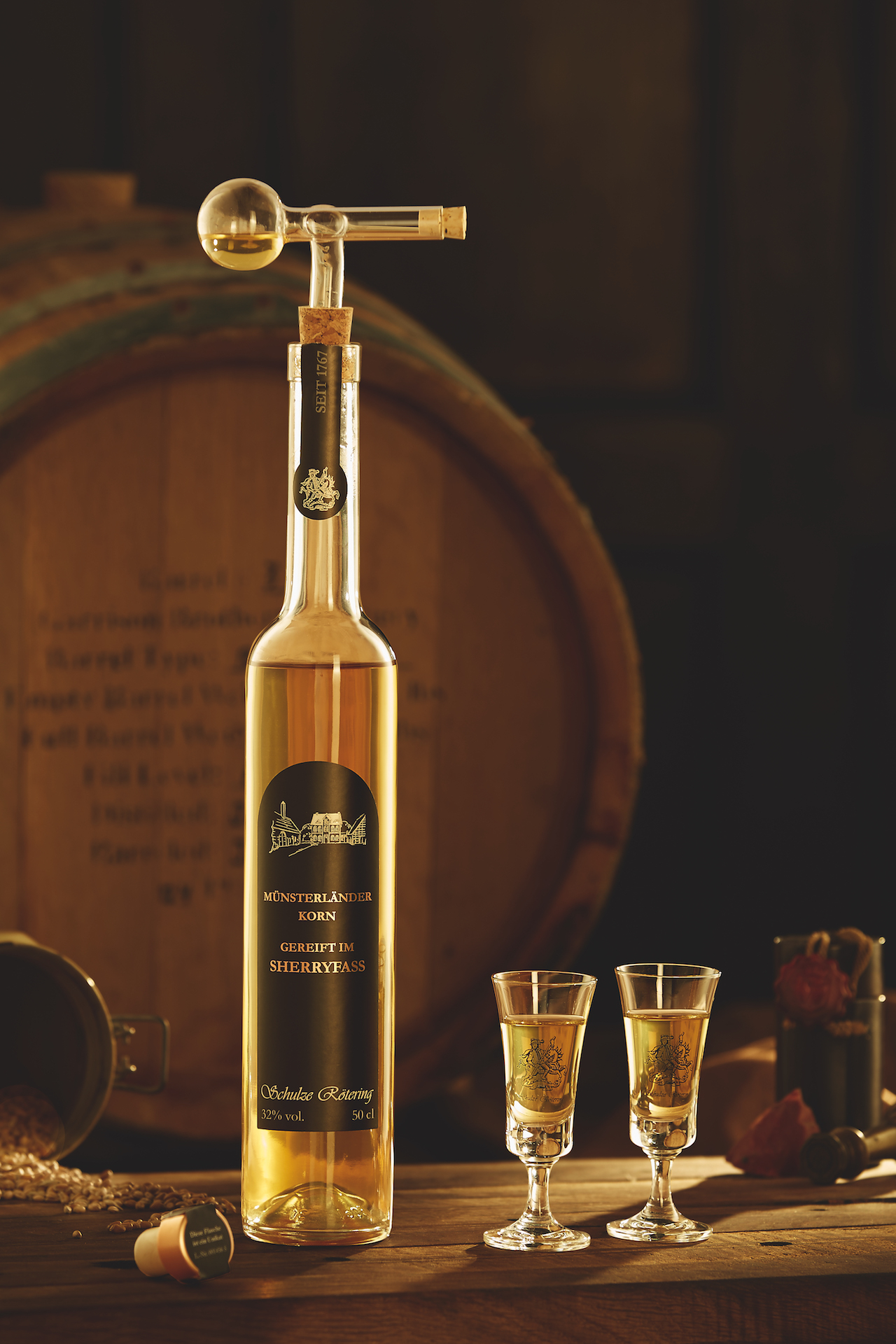
Since Schulze Rötering mainly grows strawberries in addition to wheat, it was a matter of honor that the young distillery should also produce a strawberry spirit. However, that was anything but easy, as the red crops in alcohol give off little flavor and are difficult to process. Other manufacturers make do with added flavors, but of course that was out of the question for the Schulze Röterings.
After a few failures this hurdle was overcome; the noble strawberry spirit from Ahlen has even won international awards. This also applies to another top product from the Schulze Rötering distillery, the orange spirit. The oranges for this do not thrive well in the Münsterland climate, but thanks to friendly relationships with an orange farmer on Mallorca, the Schulze Röterings have access to small quantities of the last tropical fruits harvested during the season. These have noticed the most hours of sunshine on the tree and therefore have the most intense aroma.
For the production of this exquisite orange spirit, only the peels are used because of the essential oils they contain and the pure pulp. For ten liters of finished orange spirit, 170 oranges have to be peeled, cut and painstakingly freed from the bitter white albedo - everything by hand, of course. That is only possible because the whole family lends a hand. And even then, Martin Schulze Rötering asked himself for a while whether the effort could be worth it. “We always only calculate our sales prices afterwards when we are satisfied with the result. In this case, the finished product became so expensive that we could hardly imagine selling it. ”These concerns were obviously unnecessary, because the aromatic orange spirit is now one of the absolute hits in the farm shop and online shop , and it has also become international among the recognized World Spirits Awards in Austria with the highest possible award double gold.
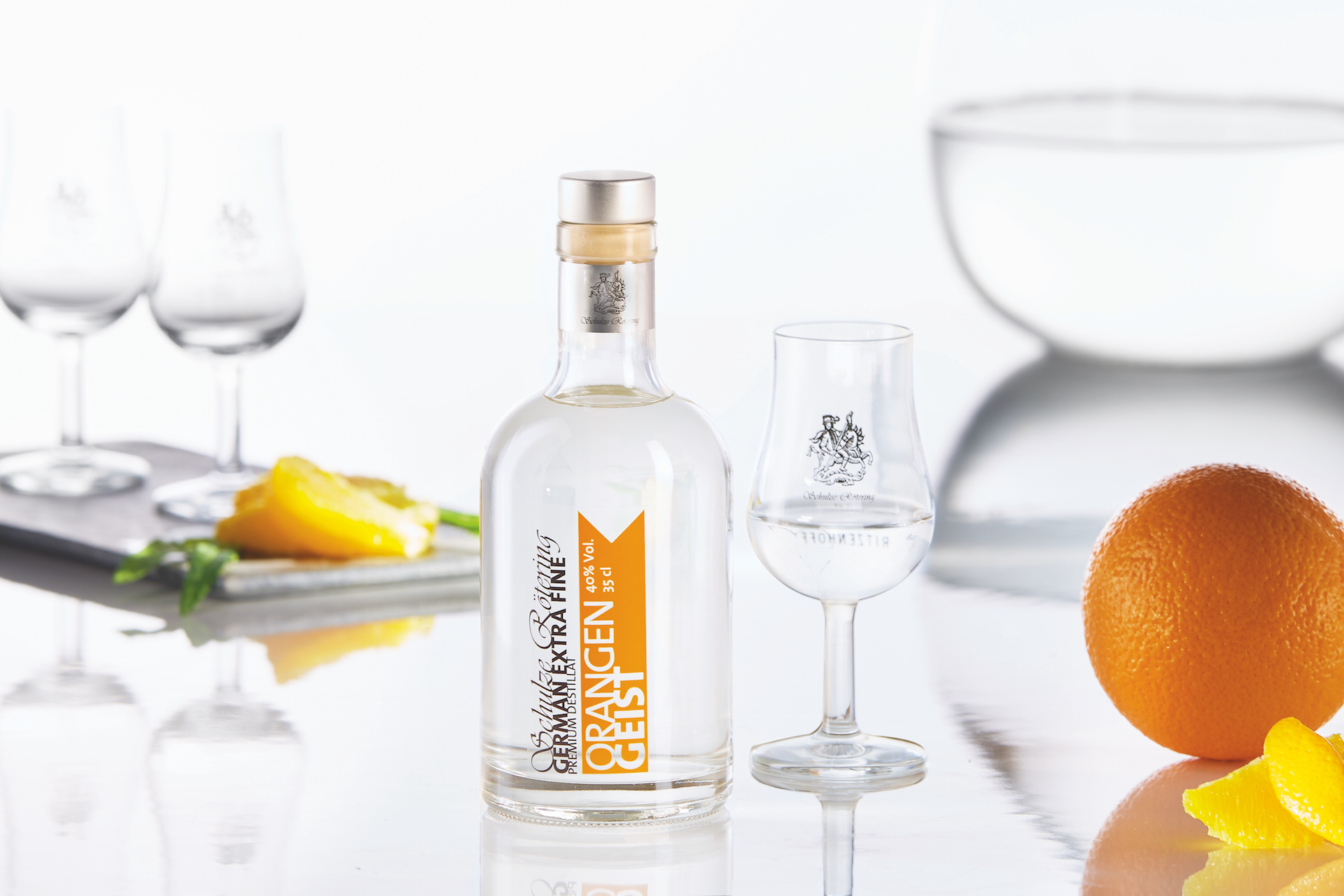
Word has long got around in Münsterland and elsewhere that excellent distillates are produced in Ahlen. People queue up in the farm shop on weekends, the entire annual production is usually sold out quickly. And representatives of larger spirits manufacturers who would like to buy larger quantities of the fine fine alcohol for their own products knock on the door. But such inquiries are all gratefully declined, even if there is probably a real deal to be made here. On the one hand, because that would only make the competition strong; But above all because Martin Schulze Rötering fears that the quality will then suffer. "If you want to achieve absolute top quality, you cannot scale or accelerate production at will."
And saving on quality because of a possible gain is out of the question for Martin Schulze Rötering. After all, it was a real affair of the heart for him to revive his grandfather's art of distilling. If he notices that other people are enjoying his spirits, then that is his greatest reward anyway. As recently with the couple from Düsseldorf, who took a detour on their way to Sylt in order to have the appropriately witty company for sunsets enjoyed together on the beach with the orange spirit from Ahlen. Special products for those special moments in life, that's exactly what Schulze Rötering wants to offer.
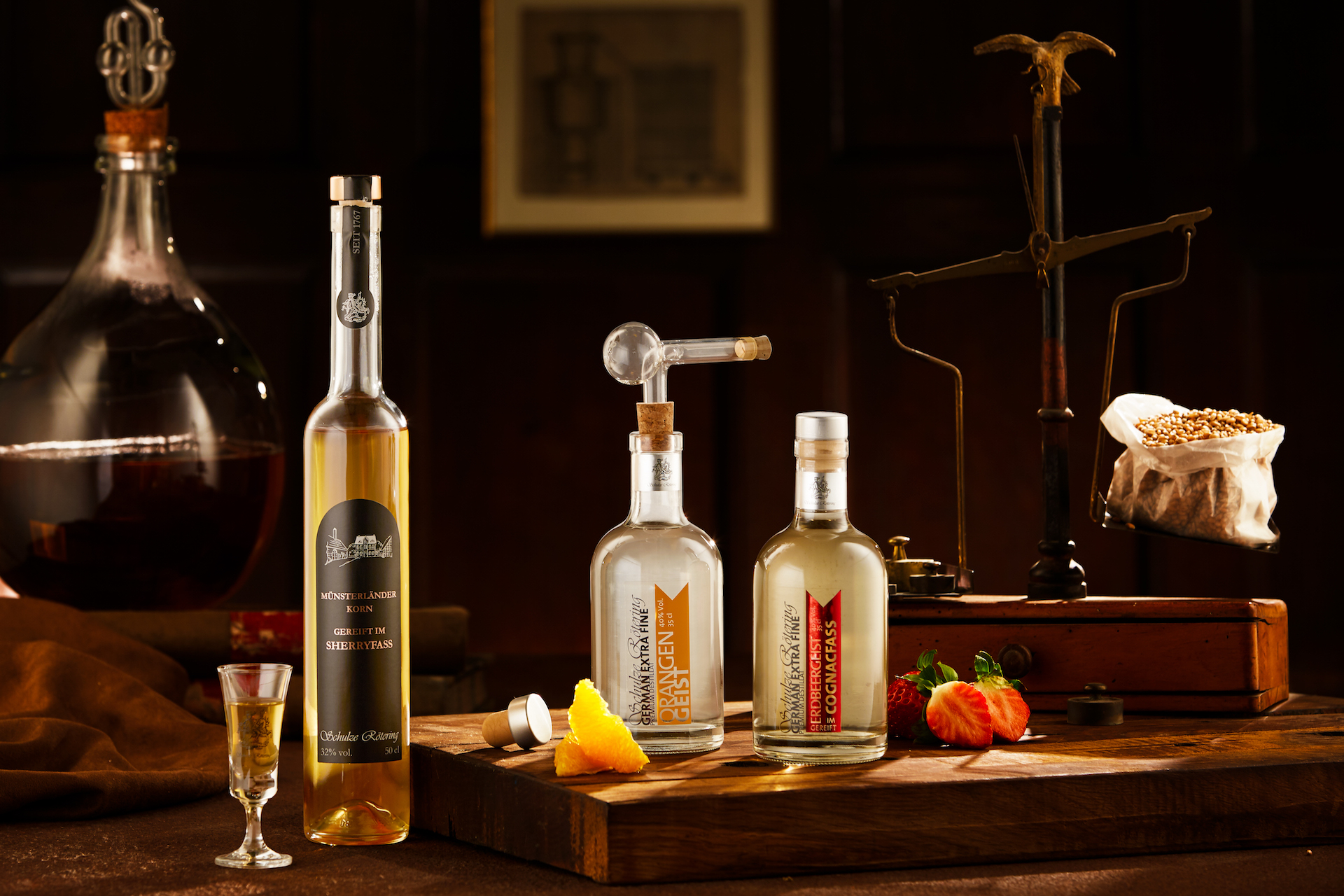
Quality pays off in the end, Boris Burat is also convinced of that. “What we do is as far removed from a mass product as you can imagine. There is a lot of passion in every bottle, in every glass, in every sip. And you can taste this passion. "
More information: www.schulze-roetering.de
